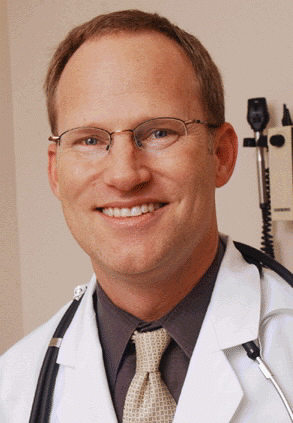Bradley F. Marple, MD is Professor and Vice-Chair of the Department of Otolaryngology at University of Texas Southwestern Medical Center in Dallas, and is a member of ENT Today’s editorial board.
Explore This Issue
October 2008It has been suggested that since its introduction in 1992,1 the term evidence-based medicine (EBM) has reached almost iconic status within the medical lexicon.2 Ironically, when that suggestion is subjected to the rigors of EBM, it risks being cast upon the scrap heap of grade D evidence by virtue of its apparent vapid evidence!
Fortunately, there are some data beyond that of mere expert opinion to support the impact EBM has made within the field of health care. A simple Pubmed literature search in August using the term evidence-based yielded more than 43,000 citations. So even if the iconic status of EBM cannot be fully supported, it appears that EBM has made a rapid and significant impact on the way in which medical information is processed. Such rapid changes within a world that has long been based in tradition, experience, and dogma3 appear to represent what might be better described as a culture shift. But, as with all such cultural shifts, changes are often met with disagreement and resistance. The challenge to the profession during times of change is to support healthy discussion without losing sight of important issues. Change is healthy, but it is also frequently uncomfortable.
At its core, EBM provides for a systematic approach to use of the best available scientific information, allowing for more objectivity in diagnosing and treating individual patients. In fact, the concept of EBM was best described by David Sackett as the conscientious, explicit, and judicious use of the current best evidence in making decisions about individual patients.4 It involves using a set of skills to acquire and evaluate the available medical literature so that the most accurate information can be used as the basis of clinical decision making, thus minimizing the impact of incorrect, inadequate, biased, or outdated information.
 Increasingly available high-grade evidence provides sound information that can play a role in clinical decision making, but is not intended to replace physician experience and other forms of information.
Increasingly available high-grade evidence provides sound information that can play a role in clinical decision making, but is not intended to replace physician experience and other forms of information.The concept of EBM is quite appealing in its logic and simplicity. In essence, most would agree that health care decisions based in the best scientific evidence would be ideal. In fact, the New York Times Magazine Year in Review heralded EBM as one of the most influential concepts of 2001.5 However, areas of disagreement have arisen between proponents of EBM and its detractors.6,7 Those favoring EBM feel strongly that it provides the tools necessary to repair problems traditionally encountered in health care. Wide variations in clinical practice, use of unproven therapeutic interventions, and over-reliance on anecdotal experience are among some of the problems cited for which application of EBM may offer some help. Opponents, on the other hand, point out the practical and philosophical flaws inherent in the principles of EBM, arguing that EBM inadequately accounts for the complexity of medical practice and devalues the role of the individual clinician in patient care decision making. Examination of such criticisms may provide for some clarity regarding the current impact of EBM on the delivery of health care and may serve to refocus the expectations for its future.
Leave a Reply